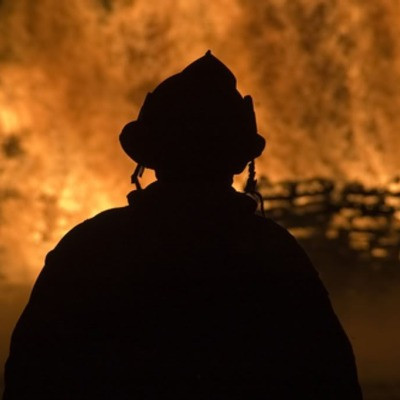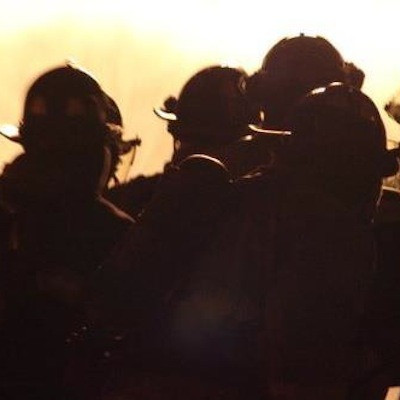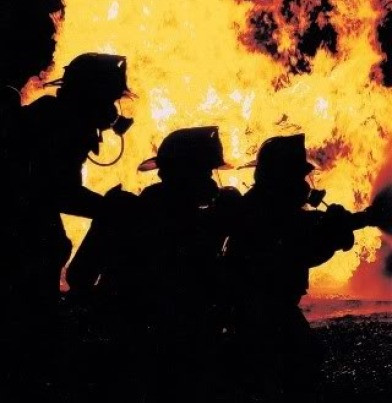Marijuana Growing Facilities “Serious Concern,” Says RI Fire Marshal
Wednesday, March 11, 2015
The Rhode Island Fire Marshall has said that he has "serious concerns" about marijuana growing facilities in Rhode Island.
State Fire Marshall John Chartier spoke with GoLocal following a five alarm fire on Kinsley Avenue that was put out on Tuesday, where the Cannabis Producer Association of New England (CPA) had been located.
Chartier said as an investigation is underway that he couldn't speak to the cause of the fire that began Monday night that required mutual aid from additional Rhode Island towns and injured one firefighter, but he did address his concerns about marijuana growing facilities in general in Rhode Island the state.
GET THE LATEST BREAKING NEWS HERE -- SIGN UP FOR GOLOCAL FREE DAILY EBLAST"Regardless of that fire, we've had concerns about grow facilities," said Chartier. "We've had at least two fires related to marijuana grow facilities in the state. A grow facility might be installed not quite up to code, which could lead to electric overloads, or be using butane as part of the process. Again, I'm not speaking directly to the [Kinsley Avenue] fire as it's still under investigation."
The utilization of the highly flammable butane in the production of butane hash oil has recently come under scrutiny. In Colorado, where marijuana is legal, the City of Aurora said it is looking ban all private hash oil production, as the city had six explosions or fires since October 2013 linked to the manufacture of hash oil at private residences, according to the Denver Post.
SLIDES: See Butane Hash Oil Explosions Across U.S. BELOW
On Tuesday, Chris White with the Cannabis Producer Association acknowledged that the office was no longer there, but he could could not provide any further comment on the fire or destruction of the building. The Rhode Island Patient Advocacy Coalition had been slated to begin "grow classes" at CPA's location on Kinsley Avenue today.
Fire Marshal Chartier said that the fire was still "under consideration" on Tuesday in conjunction with the fire department and the Bureau of Alcohol, Tobacco, Firearms and Explosives.
Chartier added that the latter was there for the size of the building, not any drug related activity. "Usually they get involved when there's a multi-million [dollar] loss for investigation," said Chartier. "The preliminary factor is a multi-million dollar loss."
Chartier said on Tuesday that the fire scene was still "hot" after it began burning on Monday night -- so their dogs couldn't be sent in to sniff out if there were any accelerants.
Noting that he couldn't speak specifically to the Kinsley Avenue fire, Chartier said that his office has seen fires related to marijuana production in Rhode Island recently.
"We had one near Central Falls and one in Barrington, but nothing of a fire of this magnitude," said Chartier. "What's happening with grow centers -- you get a license to grow, once you get that license, you can basically go and take it anywhere you want. You can go to a private home. The question has been, the folks at the Department of Health know the license owner, that doesn't mean we know where the facility is."
"The one in Barrington was an electrical overload," said Chartier of the two fires referenced. "The other one was in Valley Falls. The amount of grow lamps is an issue, especially in a cold environment, as it often doesn't conform with the amount of electricity that's available."
"Butane, on the other hand, is a highly flammable type of gas," said Chartier. "I don't know what it's used for in some marijuana production - just that it's used."
Law Enforcement Insight, Advocates Stress Regulations
Rhode Island State Police Detective Commander Major Kevin O'Brien addressed the legality of marijuana -- and butane -- in Rhode Island.
Like Chartier, O'Brien said he couldn't speak to the Kinsley Avenue fire, but rather the general situation regarding marijuana production in the state.
"If you're a [medical marijuana] patient, you're allowed twelve mature plants and 2.5 ounces," said O'Brien. "If you're a caregiver, you can have up to twenty four mature plants and five ounces."
"If there's butane present, and someone's growing marijuana, you can't do that," said O'Brien. "If you come upon a residence, and there's anything combustible along with marijuana, they can charged with manufacturing."
Last October, San Francisco police officer Keith Graves wrote a piece for the website PoliceOne entitled, "Butane Hash Oil: An Explosive Threat to Officers."
"Over the past few years, use and manufacturing of Butane Hash Oil (BHO) has skyrocketed," wrote Graves."This poses a significant threat to street officers and narcotics officers who are the first to respond to these explosions. If officers don’t take the right steps to ensure their personal safety on scene of a BHO lab, they can find themselves the next victims in a BHO explosion."
"We haven't arrested anyone in the state for locating butane with marijuana," said O'Brien. "With that being said, we just received clarification from the [Rhode Island] Attorney General a few weeks ago with regard to butane 'honey oil.' The [Attorney General's] office and appellate groups came to the conclusion that we can make arrests. I can only speak to the state police for not making any so far, I don't know about cities and towns."
The Office of the Attorney General refused to comment on Tuesday on the recent clarification made to law enforcement regarding butane and marijuana.
Jared Moffat with the legalization advocacy group Regulate Rhode Island said that he wasn't aware of any butane being used at the Kinsley Avenune location.
"I definitely wasn't aware of anything going on there, so I can't speak to that," said Moffat, who was at the press conference last week introducing tax and regulation legislation. "But butane hash should be regulated -- it's our core argument. Any production should be regulated to minimize public health risks."
"If you don't regulate, you'll have people do it an unregulated setting," Moffat continued. "Resisting regulation would ensure something like this kind of event could happen in the future, but again, I'm not speculating as to whether or not it was the cause."
Related Slideshow: Butane Hash Fires in the U.S.
Here is a look at the butane hash fires that have occured throughout the United States.
Related Articles
- NEW: Massive Providence Fire Took Place at Marijuana Producers Association Building
- Guest MINDSETTER Rep Scott Slater: Replace Illicit Marijuana Industry with Legitimate Businesses
- Marijuana “Vape Lounge” to Open in Downtown Providence on Saturday
- Obamacare Implications of Medical Marijuana in Rhode Island
- Marijuana Tax Has Bipartisan Support in RI
- Marijuana Tax Bill Presented to Senate Committee
- Personality Test of Marijuana Users Reveals Surprising Results
- Leonardo Angiulo: Further Refining the Investigation of Marijuana Offenses
- Marijuana Debate Evolves as New Advocacy Group Forms
- RI Hospital: Legalizing Med. Marijuana Does Not Increase Youth Use
- Legalized Marijuana in Jeopardy with Mattiello as Speaker
- Marijuana “Patient Vapor Lounge” to Open in Downtown Providence
- Regulate RI Seeks to Make Rhode Island the Next State to Regulate Marijuana Like Alcohol
- NEW: ACLU Files Suit Over Medical Marijuana Discrimination
- Guest MINDSETTER™ David Ellison: It is Time We End the Prohibition of Marijuana
- NEW: National Marijuana Advocate in RI for Legalization Forum
- State Report: Marijuana Tax + Bill Targets Prostitutes and Pimps
- Will New Findings on Marijuana Dangers Hurt Legalization Efforts?
- Synthetic Marijuana: Is it the Next Heroin?
- Can Medical Marijuana Help Stop the Opiate Epidemic in RI?
- RI Lawmakers Introduce Marijuana Legalization Legislation
- Ben And Jerry’s Open to Marijuana Infused Ice Cream
- Lean Gov’t, Marijuana, and a Twin River Hotel: This Week at the State House
- New Report: Legalized Marijuana Could Generate up to $82M for RI























